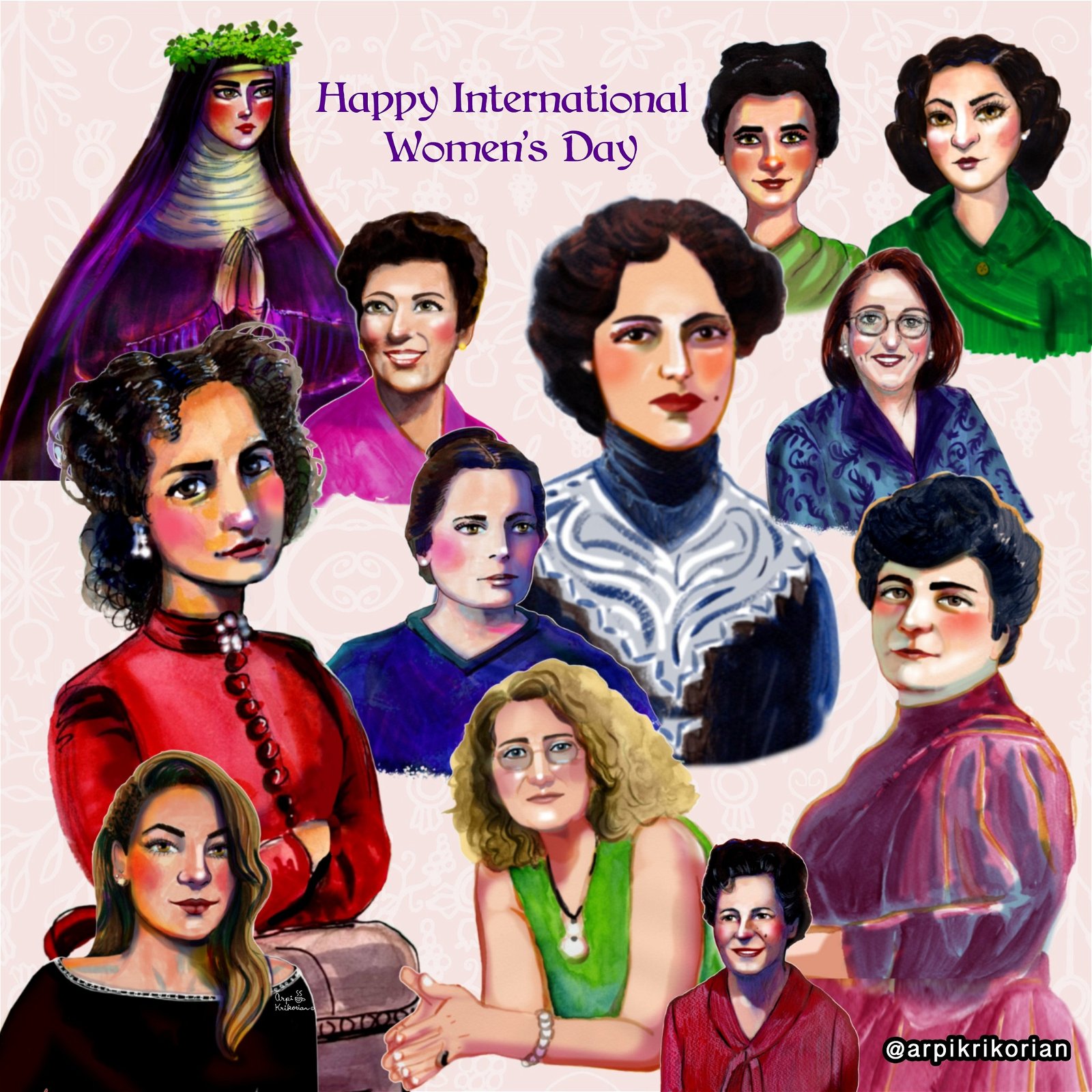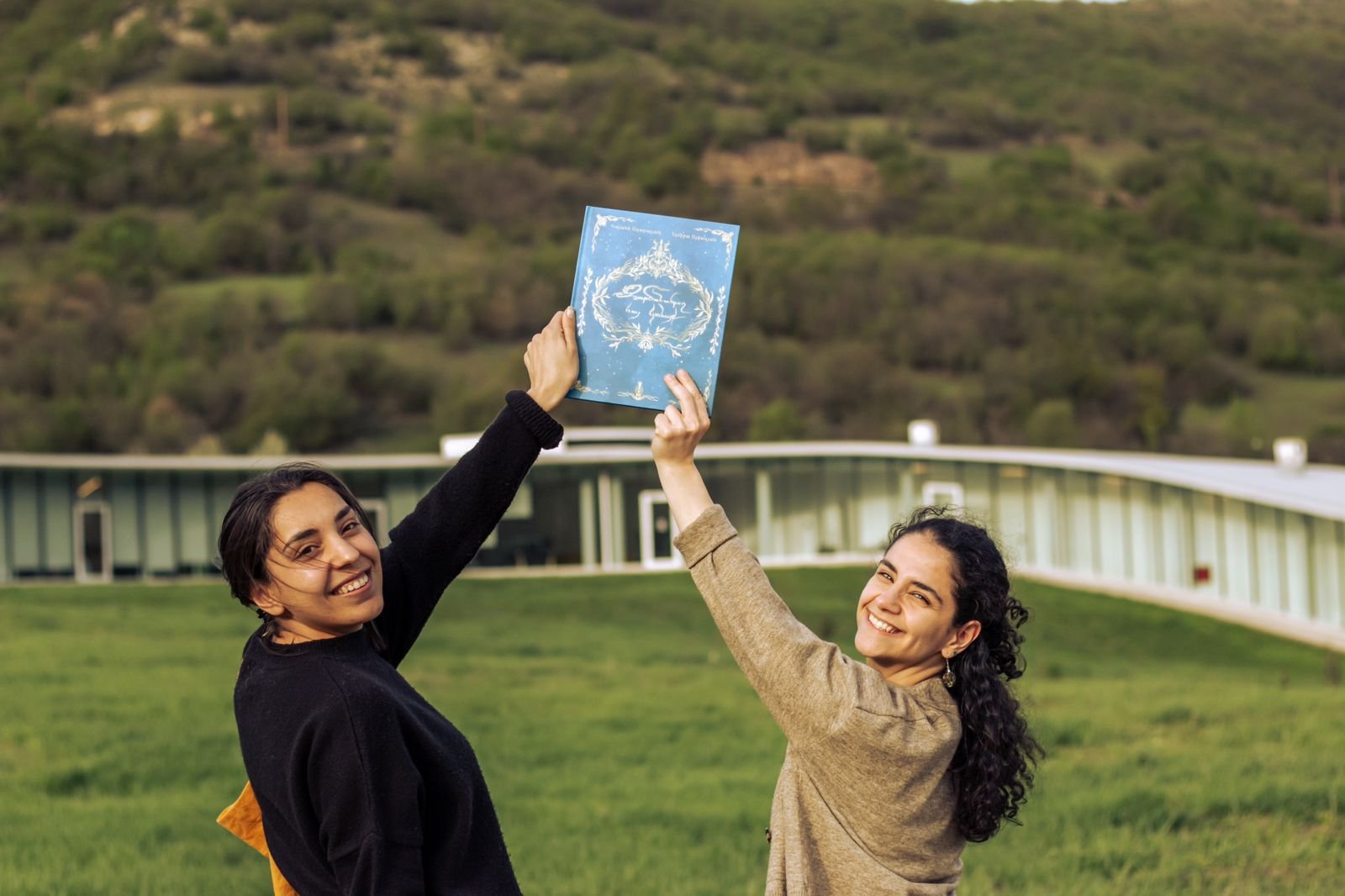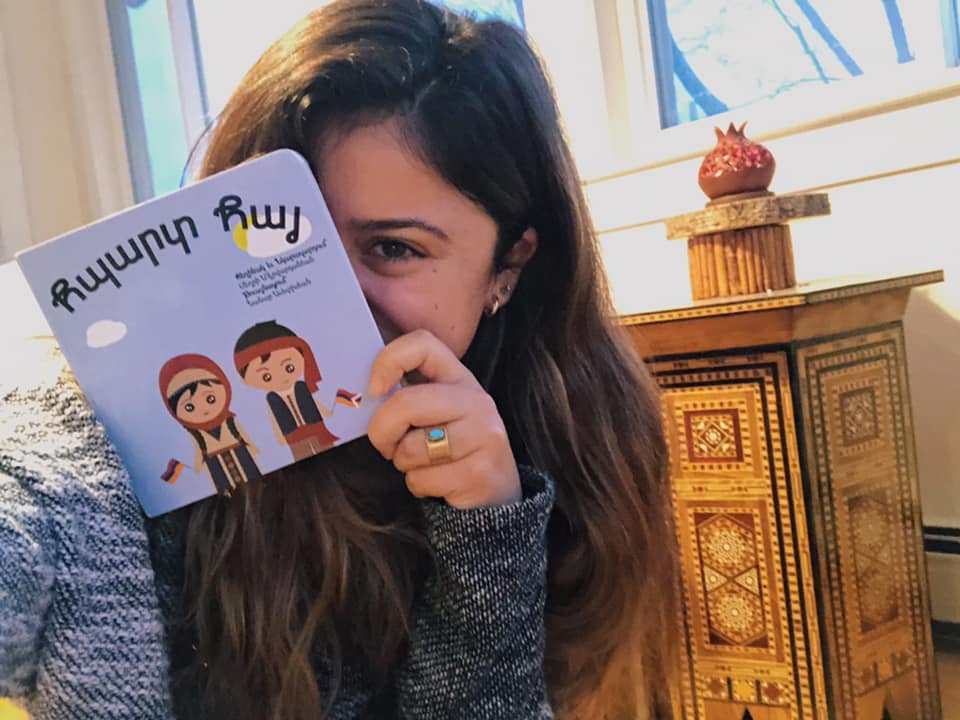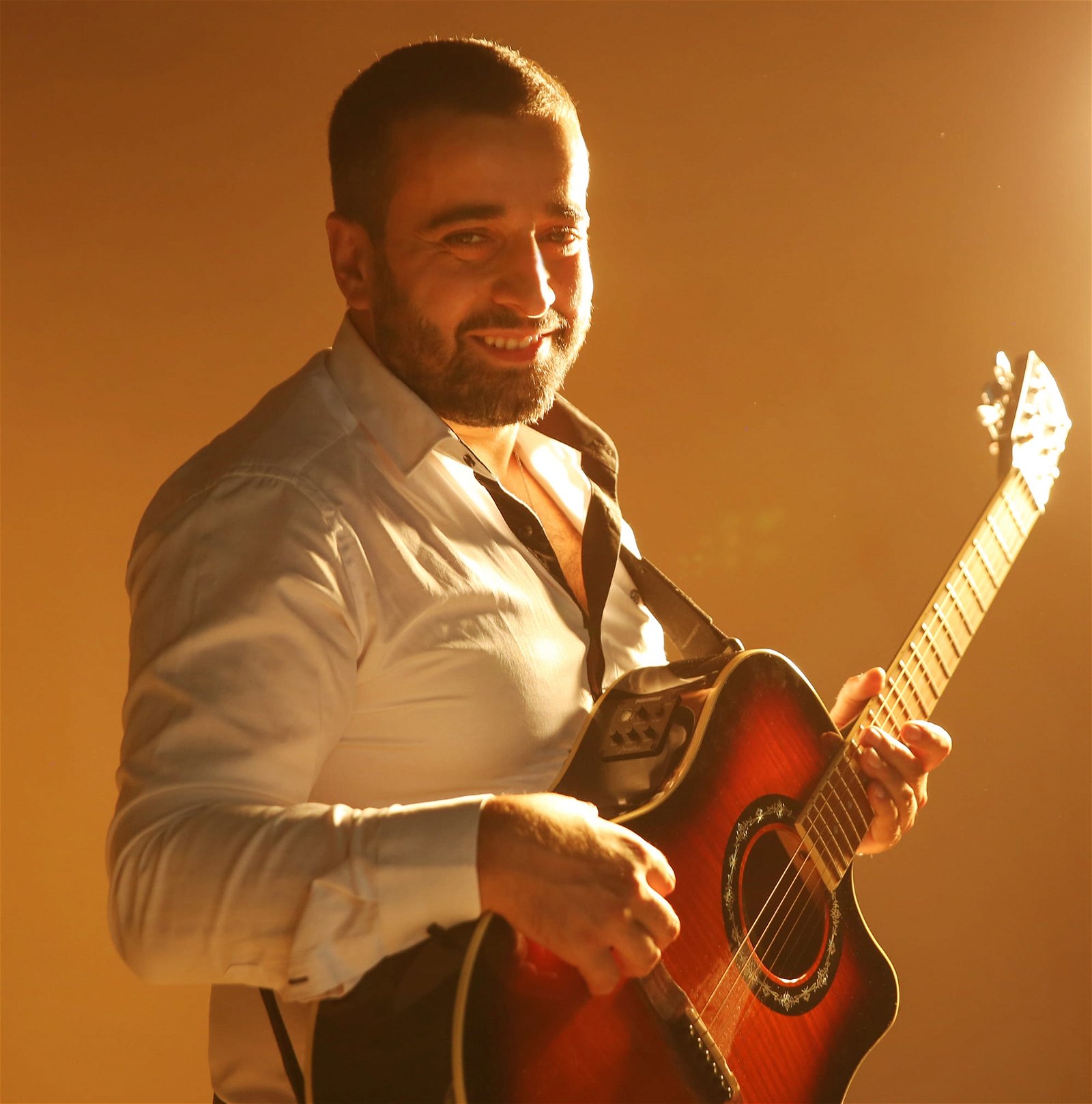Day: March 19, 2024
I am proud to stand with resilient Armenian women from the past, shaping tomorrow’s history together. I am also honored to work alongside today’s Armenian women writers, many of whom are preserving the Western Armenian language from disappearing.
In 2009, UNESCO designated Western Armenian as “definitely endangered” due to children not speaking it. UNESCO classifies language endangerment in four levels: “vulnerable,” “definitely endangered,” “severely endangered” and “critically endangered,” based on intergenerational transfer. While there’s no precise threshold for identifying endangered languages, UNESCO’s 2003 document on language vitality outlines nine factors, including the presence of literature in the endangered language.
Western Armenian is perilously close to extinction, just three steps away from being classified as “extinct” and one step away from being labeled “severely endangered.” The crucial factor lies in our children and the accessibility of educational materials and literature originally written in Western Armenian.
Among the relentless advocates striving to prevent further progression along the extinction continuum are six Armenian women.
 Photo and illustrations by Apri Krikorian (Facebook)
Photo and illustrations by Apri Krikorian (Facebook)
Women like Apri Krikorian, founder and president of Arpi Publishing, whose mission is to engage authors and book illustrators in the creation of original Western Armenian works for children and young adults. Through initiatives like the 2024 Western Armenian Women of Letters Calendar featuring 12 remarkable writers, the organization breathes life into its mission. Beautifully illustrated, the calendar reminds readers of many women writers from history and introduces women writers of today.
Women like Dr. Tamar Marie Boyadjian, an esteemed author, poet and internationally acclaimed figure in Western Armenian literature. As the sole U.S.-born writer featured in the calendar, she contributes to Arpi Publishing as both a curator and translator, and she’s currently crafting a fantasy series for young adults.
Women like Dr. Maral Aktokmakyan, a literary scholar, translator and editor based in Istanbul. She writes about modern Western Armenian literature, with particular attention to women authors and autobiographical narratives. Serving as one of the curators and translators for the calendar, her work illuminates the rich tapestry of Armenian literary heritage.
 Gayane Aghabalyan and Elmira Ayvazyan
Gayane Aghabalyan and Elmira Ayvazyan
Women like Gayane Aghbalyan and Elmira Ayvazyan, the authors of Armenian Wonderwomen. The book showcases the extraordinary achievements of 38 Armenian women who transcended societal gender barriers. Their collaboration, sparked during an exchange program in the U.S., culminated in a four-year project to unearth forgotten stories. Armenian Wonderwomen is distributed in North America by Arpi Krikorian.
Women like Meghri Dervartanian, dedicated to educating children in Western Armenian. Through a series of children’s books, alphabet flashcards and teaching tools, she cultivates a passion for the language, offering tutoring classes and a vibrant social media presence to engage both children and adults alike.
 Meghri Dervartanian
Meghri Dervartanian
These remarkable women arrived at a common realization through diverse paths. For Krikorian, the urgency of the situation became apparent when an Armenian bookseller informed her of the absence of new Western Armenian authors. Dr. Boyadjian and Dr. Aktokmokyan embarked on intensive research, identifying a mere 40 women writers in Western Armenian literature, 12 of whom were showcased in the Western Armenian Women of Letters Calendar. Aghbalyan and Ayvazyan were similarly moved by the erasure of countless women from history. For Dervartanian, it’s a fervent desire to instill her love and passion for her mother tongue in others, so they will speak and create with it.
During Women’s History Month, let’s pay tribute to the legacies of notable Western Armenian women writers such as Srpouhi Dussap, Zabel Asadour (Sybil) and Zabel Yesayan, by supporting the emerging Armenian women who are destined to become the legacies of tomorrow’s history. Let’s start by writing and speaking their names: Արփի Գրիգորեան, Թամար Մարի Պoյաճեան, Մարալ Ագթօքմաքեան, Գայանե Աղբալյան, Էլմիրա Այվազյան, and Մեղրի Տէրվարդանեան.
Author information

Victoria Atamian Waterman
Victoria Atamian Waterman is a writer born in Rhode Island. Growing up in an immigrant, bilingual, multi-generational home with survivors of the Armenian Genocide has shaped the storyteller she has become. She is a trustee of Soorp Asdvadzadzin Armenian Apostolic Church and chair of the Armenian Heritage Monument in Whitinsville, MA. She is the author of “Who She Left Behind.”
The post Today’s women are writing tomorrow’s history appeared first on The Armenian Weekly.
 Vahag Rush
Vahag Rush
For many, Vahag Rush is an artist who breaks stereotypes. With his career trajectory, Rush shows that one does not need to limit themselves to one single path and can instead pursue several professions and excel in all of them. From the worlds of programming and accounting to the realm of music, Rush is an inspiring example for young artists, proving that it’s never too late to pursue our passion, learn something new and succeed. He brings a wave of fresh air to Armenian music, fusing poems by renowned Armenian authors with elements of the rock genre to create something unexpected and extraordinary. In my exclusive interview with Rush, we discussed his artistic motives and inspirations, the current state of Armenian music, the recipe for success in the music industry and the intricacies of Armenian rock.
How has your background in programming and accounting influenced your approach to music composition? Would your musical style be different if you had formal music education? What is the importance of professional musical education in general?
My profession and education help me earn money to spend on music. If I had a professional musical education, I probably would have pursued a different path. Of course, having professional musical education and undergoing vocal training, which I am currently doing, is important.
Your songs often feature lyrics adapted from poems by renowned Armenian authors like Yeghishe Charents, Hovhannes Shiraz, Silva Kaputikyan, Hamo Sahyan, Vahan Teryan, Paruyr Sevak and Misak Metsarents. How do you select which poem to set to music? Do you typically compose the music first and then choose a poem, or do you find inspiration from the poem itself to create corresponding music?
Yes, indeed, I choose the poems of our famous poets. I used to select poems that were popular, but not anymore. Now I do what I like, and that’s partly my secret [of success], because I don’t try to compose something that would please my listeners. It turns out that what I like is already on another level. As for the music and lyrics, it depends on the circumstances. If I use poems by famous poets, there is usually a certain energy in the poems that inspires the music and, consequently, the song. However, when I only compose the music, I send it to my friends, who are writers. Together, we discuss what I want to express through this music and choose the words for the song. When it comes to collaborating with contemporary writers, I have collaborations with Tatev Voskanyan, Ani Heruni Sajyan, and sometimes my mother writes my lyrics. My most popular songs, such as Es Kgam and Indz het mna, are among these songs.
Your music primarily falls within the rock genre. What draws you to rock, and, in your opinion, why are there relatively few rock musicians and songs in Armenian music?
Yes, indeed, there are a lot of rock elements in my songs. Initially, I loved this style very much and always imagined all our famous songs in a rock style. That’s my handwriting. Although I can’t say that I exclusively play and sing rock, rock elements are present in my songs.
As for musicians and rock music in Armenia, it’s not a question but rather a problem. Because earning enough money to support a family and live a good life with this music is not possible. That’s why there are relatively few rock musicians and songs in Armenian music. We have many talented musicians, but they prefer to sing what is currently demanded by the audience and what brings in money.
What is your assessment of the current state and quality of Armenian music? In what areas do you see room for improvement?
This is a very painful question, and the quality of our Armenian music that is currently in trend is very poor. Because what is being sung now cannot be called Armenian music. It’s more like Eastern songs in Armenian – although there are very good musicians who sing genuine Armenian songs and new musicians who create excellent new works. But overall, the state of our music leaves much to be desired, and improving this situation will take time and effort over many decades. It’s a very difficult question.
What qualities are necessary to succeed in the music industry? Why do some artists thrive while others struggle? Is success primarily determined by talent, financial resources or other factors?
All the aspects you listed are important: money, talent and a good taste for creating quality music. What we do in Armenia and what Armenians sing is hard to export beyond the country. Armenian music is listened to here, but exporting it abroad is a challenging task. Very few artists achieve that. It requires a lot of time, financial resources and attention from childhood. Success largely depends on money and what you sing. Not only in Armenia, but also worldwide, there are changes happening now. Quality music is no longer in fashion; dance music with rhythms is in trend now.
As an artist who actively engages with social media, how do you perceive its impact on your success in the industry?
I’m sure that if it weren’t for social media, I wouldn’t have been recognized at all, because now it’s not difficult for me to get on television, but for a young emerging artist, it’s very hard. When I started out, it took a lot of money to get my music videos on television programs and participate in competitions or charts. Social media played a huge role in my career. So, I couldn’t do without it.
Why do you think Armenian songs with Arabic influences gain more popularity compared to traditional Armenian melodies? How can this trend be addressed or changed?
Why only Arabic? Turkish, Azerbaijani, Bulgarian, Greek…There are many songs that are plagiarized from these countries. There are some artists who easily take a composition from another nation, translate it into Armenian and sing it without any shame. For me, this is a serious issue, and I honestly don’t know what to do about it. It has already seeped into our culture, and changing it requires serious efforts. Our government should ban such actions and change people’s mentality. Komitas, you probably know what he did. He extracted all the foreign elements from our songs and left only the purely Armenian essence. We need to do the same; we need many more Komitases, but unfortunately, we don’t have them.
Why does this happen? Because people earn money with these songs. People love them, listen to them, and artists get paid for it. So what can be done?
What upcoming projects and songs can your fans expect from you in the near future?
I am preparing a lot right now. I am working on a new version of the song “Es Kgam” and preparing a music video for it, which I think will turn out very beautifully. I am also preparing the song “Zoo” by author Ruben Hakhverdyan, as well as many other new songs and projects.
What is the best advice you’ve ever received, and what advice would you give to young Armenian musicians?
The best advice I’ve ever received is to be yourself and follow your passion without fear of being unique. My own advice to young Armenian musicians is not to be afraid to experiment, strive for excellence in their craft, and find their unique voice in the music world. It’s important to be persistent, patient and open to learning, as well as confident in yourself and your creativity.
Author information

Milena Baghdasaryan
Milena Baghdasaryan is a graduate from UWC Changshu China. Since the age of 11, she has been writing articles for a local newspaper named Kanch (‘Call’). At the age of 18, she published her first novel on Granish.org and created her own blog, Taghandi Hetqerov (‘In the Pursuit of Talent’)—a portal devoted to interviewing young and talented Armenians all around the world. Baghdasaryan considers storytelling, traveling and learning new languages to be critical in helping one explore the world, connect with others, and discover oneself. Milena currently studies Film and New Media at New York University in Abu Dhabi.
The post From programming to rock: Vahag Rush appeared first on The Armenian Weekly.
Spring comes to Azerbaijan
NPR News: 03-19-2024 11PM EDT
Learn more about sponsor message choices: podcastchoices.com/adchoices
The lawyer, Yana Ndikulu, said Bujakera — who works for international media including Reuters and Jeune Afrique — was released on Tuesday evening from the prison in the capital Kinshasa where he was being held.
“Our client is free,” Ndikulu said.
Bujakera told Reuters the director of the prison had told him he was free to leave shortly after 9:30 p.m. local time.
A court in Kinshasa on Monday had found Bujakera guilty of spreading false information, among other charges.
It sentenced him to six months in prison and fined him 1 million Congolese francs ($364). His legal team said after that ruling that Bujakera would be released on Tuesday because he had already served his sentence.
But the release was unexpectedly suspended after news emerged on Tuesday evening that the state prosecutor in the case had lodged an appeal against the sentence. About three hours later, however, Bujakera’s lawyers said the prosecutor had withdrawn his appeal, paving the way for his release.
Contacted by Reuters after the release, the prosecutor said he could not comment further.
Bujakera was arrested in September on suspicion of spreading false information about the killing of a prominent opposition politician in an article published by Jeune Afrique, the French news magazine has said.
The prosecutor in the case earlier this month had asked the court in Kinshasa to sentence Bujakera to 20 years in prison.
Local and international rights groups including Reporters Without Borders and Amnesty International had condemned Bujakera’s detention, calling it an attack on press freedom. Reuters had also called for his release.
The lawyer, Yana Ndikulu, said Bujakera — who works for international media including Reuters and Jeune Afrique — was released on Tuesday evening from the prison in the capital Kinshasa where he was being held.
“Our client is free,” Ndikulu said.
Bujakera told Reuters the director of the prison had told him he was free to leave shortly after 9:30 p.m. local time.
A court in Kinshasa on Monday had found Bujakera guilty of spreading false information, among other charges.
It sentenced him to six months in prison and fined him 1 million Congolese francs ($364). His legal team said after that ruling that Bujakera would be released on Tuesday because he had already served his sentence.
But the release was unexpectedly suspended after news emerged on Tuesday evening that the state prosecutor in the case had lodged an appeal against the sentence. About three hours later, however, Bujakera’s lawyers said the prosecutor had withdrawn his appeal, paving the way for his release.
Contacted by Reuters after the release, the prosecutor said he could not comment further.
Bujakera was arrested in September on suspicion of spreading false information about the killing of a prominent opposition politician in an article published by Jeune Afrique, the French news magazine has said.
The prosecutor in the case earlier this month had asked the court in Kinshasa to sentence Bujakera to 20 years in prison.
Local and international rights groups including Reporters Without Borders and Amnesty International had condemned Bujakera’s detention, calling it an attack on press freedom. Reuters had also called for his release.
⚡️ Naryshkin said that France is preparing 2,000 troops to be sent to Ukraine
The director of the Russian Foreign Intelligence Service, Sergey Naryshkin, has said that Russia has information that France is already preparing a military contingent to be sent to Ukraine, initially… pic.twitter.com/1MV1bcaaY7
— NEXTA (@nexta_tv) March 19, 2024
